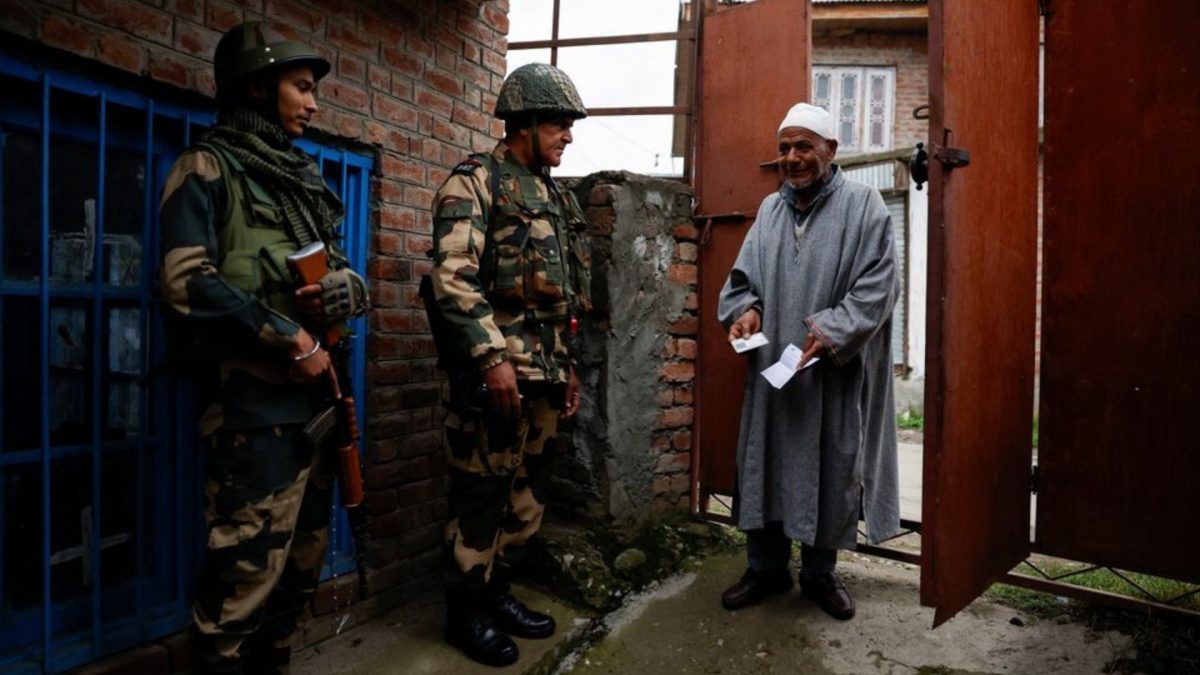Jammu and Kashmir is going to the polls.
The Election Commission of India (ECI) on Friday announced that the Union Territory will hold Assembly elections in three phases.
Phase 1 will begin on September 18, phase 2 on September 25 and the third and final phase on October 1.
Jammu and Kashmir currently has 90 seats in the Assembly with Jammu having 43 seats and Kashmir having 47 seats.
There are about 3.71 lakh first-time voters in the Union Territory.
The results will be announced on October 4.
Jammu and Kashmir previously held election in 2014.
But why is Jammu and Kashmir finally going to the polls now? And what happened the last time it held elections?
Let’s take a closer look:
Why is it finally going to the polls?
The Supreme Court in December had ordered the Election Commission to hold polls in Jammu and Kashmir by September 30, 2024.
The apex court bench led by Chief Justice of India DY Chandrachud and comprising justices Sanjay Kishan Kaul, Sanjiv Khanna, BR Gavai, and Surya Kant made the ruling on a clutch of petitions challenging the revocation of Jammu and Kashmir’s special status.
The court unanimously upheld the Centre’s August 5, 2019 decision to abrogate provisions of Article 370 bestowing special status to the erstwhile state.
The then state was bifurcated into two Union territories of Jammu and Kashmir and Ladakh.
Impact Shorts
More ShortsThe bench also ordered the restoration of statehood “at the earliest” as well as elections to the Assembly by September 30.
Justice Chandrachud referred to Solicitor General Tushar Mehta’s statement that Jammu and Kashmir’s statehood will be restored – except for the carving out of the Union Territory of Ladakh.
“We direct that steps shall be taken by the Election Commission of India to conduct elections to the Legislative Assembly of Jammu and Kashmir constituted under Section 14 of the Reorganisation Act by September 30, 2024. Restoration of statehood shall take place at the earliest and as soon as possible,” the CJI said.
Prime Minister Narendra Modi called the ruling a “resounding declaration of hope, progress, unity for our sisters and brothers in J&K and Ladakh.”
What happened last time?
Polls in Jammu and Kashir were last held in 2014.
At the time, Omar Abdullah was chief minister of the then state.
The period before the polls witnessed high-drama with the Congress and National Conference breaking off their alliance.
The 2014 election was held in five phases from November 25 to December 20 2014.
The state saw a respectable turnout of 65 per cent despite calls from the usual suspects to boycott the polls, as per Hindustan Times.
The results, announced on December 23, saw the PDP emerging as the single-largest party with 28 seats in the 87-seat Assembly.
Meanwhile, the BJP nabbed 25 seats, the National Conference got 15 seats, the Congress won 12, the JKPC got two seats seats, the CPI(M) and JKPDF won netted seat each, and Independents won 3 seats.
As per Hindustan Times, Omar Abdullah resigned and President’s Rule was imposed for a bit.
The BJP, then fresh off taking power at the Centre, teamed up with the PDP to form the government.
This was another historic first for the BJP – the first time it became a coalition partner in the Jammu and Kashmir government.
The new regime took office on March 1, 2015, with Mufti Mohammad Sayeed as chief minister.
The BJP’s Nirmal Kumar Singh took the oath of office as the deputy chief minister of Kashmir.
Then, in January 2016, Mufti Mohammad Sayeed passed away.
The then state was put under governor’s rule again before Mehbooba Mufti took over as chief minister.
But it wouldn’t last.
On June 19, 2018, the Jammu and Kashmir government fell.
Mehbooba resigned as chief minister of Kashmir after the BJP withdrew its support from the alliance.
The BJP’s Ram Madhav at the time told the media “it has become untenable for the BJP to continue with the alliance government in Jammu and Kashmir.”
“Keeping in mind that Jammu and Kashmir is an integral part of India and in order to control the prevailing situation in the State, we have decided that the reins of power in the state be handed over to the Governor,” Madhav added.
Mufti in turn blamed the turn of events on the “muscular policy” of the BJP in Jammu and Kashmir.
“We defended Article 370 and 35A”, Mufti said after her resignation, “We can’t treat J&K as enemy territory. There is no room for ‘muscular policy’ in the state.”
Though some regional parties were ready to give support to the PDP, then governor Satya Pal Malik dissolved the state Assembly.
In 2018, the Centre imposed President’s Rule in Jammu and Kashmir.
However, everything would change in August 2019 when the Centre scrapped the special status and bifurcated the then state into two Union territories.
With inputs from agencies


)

)
)
)
)
)
)
)
)



